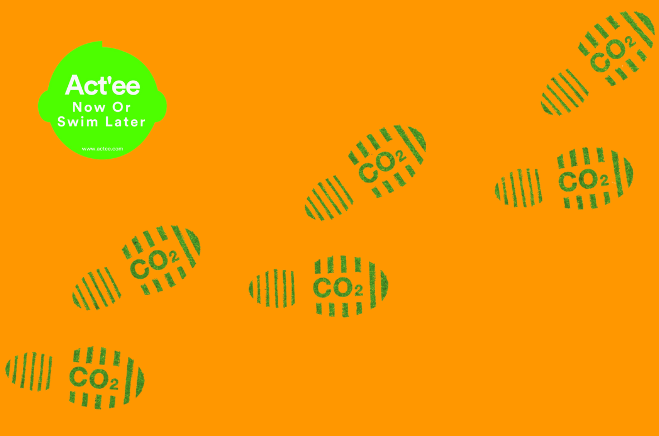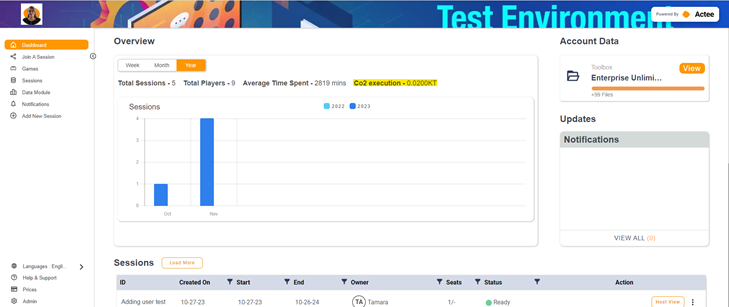
Understanding Actee's Carbon Footprint Calculation
Actee, like many online gaming platforms, has a substantial user base with players engaging in various games for entertainment and learning purposes. What sets Actee apart is its commitment to sustainability and transparency in calculating the carbon emissions associated with user gameplay. Actee devised a unique method to incorporate carbon footprint calculations directly into subscription pricing.
The core concept behind Actee's carbon footprint calculation is straightforward:
The more you play, the more CO2 you generate, and this affects your subscription cost.
Let's break down this calculation step by step:
1. User Gameplay Hours: Actee tracks the total number of hours each user spends playing their games over the course of a year. This includes all the games offered on the platform.
2. CO2 Generated per Minute: Actee has determined the total rate of carbon emissions (in CO2 equivalent) for each minute of gameplay. This rate is derived from various factors coming from Microsoft since we have all our activities on Microsoft services. Our CO2 emission includes the energy consumption of the servers, data centres, and the devices used by players and the workforce of Actee. We include all our consumption at the office too.
3. CO2 Consumption On Your Subscription: By multiplying the user's total gameplay hours by the CO2 emissions rate per minute, Actee calculates the user's CO2 consumption directly attributable to their gameplay. This stat is the first thing you see after entering the subscription.
4. Subscription Impact: This CO2 consumption is then added to the user's subscription. In essence, the more a user plays, the more they contribute to their own subscription CO2 cost by generating additional CO2 consumption.
5. We Have Our Green Partner: Provice updates the number every year – since we grow every year this adds more consumption on all the elements in the calculation.
Benefits of Actee's Approach
Actee's unique approach to calculating the carbon footprint of user gameplay and factoring it into subscription costs offers several benefits:
Environmental Awareness: By directly linking gameplay to carbon emissions and costs, Actee raises awareness among its users about the environmental impact of their gaming habits.
Incentivizing Sustainability: Users are encouraged to reduce their gameplay time or adopt more energy-efficient devices to lower their subscription costs and carbon footprint.
Funding Sustainable Practices: The additional subscription costs generated by higher gameplay are earmarked for sustainability initiatives, such as investing in renewable energy or carbon offset projects.
Transparency: Actee provides users with detailed breakdowns of their annual CO2 consumption and how it affects their subscription costs, fostering transparency and trust.

Conclusion (The Short Read)
Actee's innovative approach to calculating the carbon footprint of user gameplay and integrating it into subscription costs is a noteworthy step towards a more sustainable gaming industry. By incentivizing users to reduce their carbon emissions and promoting environmental awareness, Actee is not only providing entertaining gaming experiences but also contributing to a greener future. As other gaming platforms explore ways to reduce their environmental impact, Actee serves as an inspiring example of how sustainability and gaming can coexist harmoniously in the digital era.
Further Links:
- Fundamental guiding steps to ensure we move fast in changing the world in the learning industry find the blog here.
- A blog on the urgency for action on the green agenda here.
- A blog of initiatives to push for a greener agenda here.
- Actee is one of the heads behind a green consumer research project to make it easy to support green changes using games, the project is supported by the Danish Growth Fund and is a collaboration between Actee, RUC and Provice. Read more about the collaborative research project here.
- All the Actee games to support the greener agenda can be found here.
Support us to change the world using games.
Best,
Leif Sørensen
